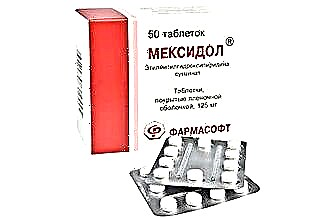Swelling of the nasal mucosa during pregnancy often annoys expectant mothers. This trouble manifests itself regardless of the term - it can take a woman by surprise both in the first weeks and literally before childbirth. The most at risk of facing the problem of swelling of the nasal mucosa are the so-called first-borns. Those who have decided to postpone the birth of a baby by taking up pregnancy planning after 30 years also fall into the risk zone.
The mucous membrane in the nose swells for various reasons. One of them is the natural changes that occur in the body of a pregnant woman. At the same time, swelling can signal the development of any serious pathology. How to remove swelling on the nasal mucosa during pregnancy? Consider the features of traditional treatment and advice of traditional medicine, as well as the specifics of prevention.
How to treat edema in pregnant women
 If the nasal mucosa is swollen and the condition does not improve, you should immediately contact a specialist. First of all, it is necessary to determine the reason for the edema. When it turns out that a pregnant woman has a stuffy nose due to the development of a viral infection in the nasopharynx, complex treatment will be needed.
If the nasal mucosa is swollen and the condition does not improve, you should immediately contact a specialist. First of all, it is necessary to determine the reason for the edema. When it turns out that a pregnant woman has a stuffy nose due to the development of a viral infection in the nasopharynx, complex treatment will be needed.
To recover as quickly as possible, you need to follow these recommendations:
- With the permission of the doctor, it is necessary to start taking medications that will help get rid of bacteria or viruses that have occupied the nasopharynx. The medicine must be chosen in accordance with the diagnosis, as well as taking into account the need to maintain the pregnancy. The main argument in favor of this or that drug is the absence of harm to the expectant mother and baby. Often, doctors prescribe drops to narrow the blood vessels. They effectively relieve unpleasant symptoms. True, it is permissible to use them no longer than 3 days. If the course of treatment is extended, the child will suffer from hypoxia.
- To reduce swelling, it is necessary to regularly moisturize the nasal mucosa. This procedure should be done using conventional saline solutions or pharmaceutical preparations (for example, "Salin", "Aquamaris", "Dolphin"). You can also use saline.
- If it's damp or cold outside, dress warmly and stay warm.
- It is advisable to constantly monitor the level of humidity in the home during pregnancy. If the need arises, you need to buy a humidifier. It will help the respiratory system to relax slightly. Thus, the appearance of irritation and swelling on the nasal mucosa can be avoided.
- If there is no extreme need, contact with those substances that can irritate the mucous membrane should be avoided. If irritation does arise, it is necessary to minimize the effect of the substance on the nasopharynx.
Often, the attending physician recommends that a pregnant woman visit the manipulation room for a course of so-called cold inhalations. These procedures are performed using ultrasound. Such inhalations are supplemented with a complex intake of herbal infusions and decoctions. But physiotherapy measures for women while waiting for the baby are strictly prohibited.
Sometimes the nose swells during pregnancy if a woman is allergic. In this case, the doctor, first of all, finds out what is the source of the allergic reaction. After that, appropriate treatment is prescribed, which eliminates all the symptoms - and swelling of the nose, and lacrimation, and cough.
Most often, the doctor prescribes antihistamines that are acceptable during pregnancy. Note that there are very few of them - in the instructions for most of them, pregnancy is listed among the contraindications.
It is advisable to supplement the main course of treatment with rinsing the nose with saline solution and massage of the nasal septum.
Additional methods
Treatment of swelling of the nasal mucosa in a pregnant woman should be adequate and must be prescribed by a doctor. However, it will be very useful to supplement the course of drug therapy (and, with the permission of the doctor, even replace pharmacy medicines) with home procedures and folk remedies. It is best to relieve nasal swelling with:
- Acupressure. Place your finger in the center of the bridge of the nose and massage this point in a circular motion for a few minutes. After that, descend onto the nasal wings and continue massaging in a circular motion, pressing lightly. Then move on to the nasolabial fold and the dimple on the chin. One session of such a massage will take about 10 minutes.
 Breathing alternately with different nostrils. This method works well to relieve puffiness. This exercise must be performed 2-3 times a day. The duration of one approach should be from 4 to 6 minutes.
Breathing alternately with different nostrils. This method works well to relieve puffiness. This exercise must be performed 2-3 times a day. The duration of one approach should be from 4 to 6 minutes.- Mustard compresses. To prepare them, you will need to fall asleep in socks (preferably warm) mustard powder and go to sleep in them.
- Rosehip decoction. Copes well with swelling of the nasal passages. Contains an incredible amount of vitamin C, useful for pregnant women. To prepare the broth, you will need to boil the rose hips in clean water, adding a little sugar there. You can replace the wild rose with willow bark, oregano or coltsfoot. They are also natural antiseptics. Before using herbal teas, be sure to check with your doctor if they will harm your child.
- Onion-garlic inhalation. To cook them, you need to finely chop the onion and garlic. Then fill them with clean water and transfer the resulting mixture to the teapot. Close it with a lid and breathe in the steam coming out of the spout. Bring your nostrils to it alternately. Be careful not to burn the mucous membrane with too hot steam.
And finally
A pregnant body is often caught in a hormonal storm. Its consequences are some not the most pleasant sensations and discomfort. Therefore, a swollen nasal mucosa for a pregnant woman may be just one of the signs of an interesting situation.
However, regardless of the reason for the development of edema, it must be treated immediately. Otherwise, the baby may have problems.
Swelling of the nasal mucosa should never be ignored. After all, long-term problems with the "supply" of oxygen to a child can adversely affect his health. As soon as there is a feeling of nasal congestion, you should immediately consult a doctor. He will prescribe the most effective and safe treatment.

 Breathing alternately with different nostrils. This method works well to relieve puffiness. This exercise must be performed 2-3 times a day. The duration of one approach should be from 4 to 6 minutes.
Breathing alternately with different nostrils. This method works well to relieve puffiness. This exercise must be performed 2-3 times a day. The duration of one approach should be from 4 to 6 minutes.

